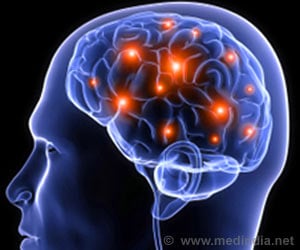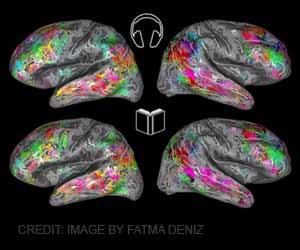
‘Primary progressive aphasia (PPA) is difficult to diagnose in the early stage and also requires targeted speech therapy to correct the specific problem in communication.’
Tweet it Now
Advertisement
What is Primary Progressive Aphasia?
PPA is a neurological condition that occurs as a result of damage to areas of the brain that control speech and language. Persons with PPA experience a gradual loss in their ability to speak, write, read, and/or understand what others are saying, without impairment of speech, memory, or comportment, which refers to behavior.“We’ve discovered each of these diseases hits a different part of the language network,” said lead author Dr. M. Marsel Mesulam, director of Northwestern’s Mesulam Center for Cognitive Neurology and Alzheimer’s Disease.
In some cases, the disease affects the area responsible for grammar, in others the area responsible for word comprehension. Each disease progresses at a different rate and has different implications for intervention.
In this new study, as many as 118 cases of PPA were considered. Thus, it is based on the largest set of PPA autopsies ever assembled.
Advertisement
How Diseases Attack the Brain?
In the 118 consecutive autopsies on patients with PPA, primary diagnosis was Alzheimer’s disease in 42 percent cases.In 10 percent of the cases, Pick’s disease was found. Pick’s disease is a type of frontotemporal dementia that causes a progressive loss of mental function, by affecting the frontal and temporal lobes of the brain.
The primary diagnosis was transactive response DNA-binding proteinopathy type A [TDP(A)] in 10 percent of the patients, and TDP(C) in 11 percent of the cases.
Transactive response DNA-binding protein is a major pathological hallmark for frontotemporal lobar degeneration conditions with certain inclusions.
The study also found that word comprehension is lost for some patients, while others lose grammar. Also, the disease is often misdiagnosed in its early stages, because of which many people miss the chance for treatment.
Patients diagnosed with PPA enrolled in a longitudinal study. They were made to undergo language testing and their brain structure and brain function were images.
The underlying disease, in 40 percent of cases of PPA, is a very unusual form of Alzheimer’s disease. According to the study, it is unusual because it impairs language rather than memory. Also, it can start much earlier when the person is below 65 years of age.
In 60 percent of the cases, the disease which causes PPA belongs to an entirely different group of conditions called frontotemporal lobar degeneration (FTLD).
Individuals with this disease may exhibit weakness, muscle loss or atrophy, tiny involuntary muscle twitches, difficulty speaking, and difficulty swallowing.
There are several approaches at a disease level and symptomatic level, once the underlying disease is diagnosed. The trick is to approach PPA at both levels simultaneously.
Advertisement
How to Treat Such Patients?
A patient suffering from Alzheimer’s disease can be treated with medication and channeled into clinical trials. A different type of speech therapy would be given to people having difficulty with word comprehension. Stimulating the nerve cells in the brain work best for people having trouble with word comprehension.Anti-anxiety medication and behavioral therapy can be used to treat anxiety around word finding.
What to do Next?
Researchers now aim to improve diagnostic accuracy through new biomarkers to identify if a patient’s PPA is caused by Alzheimer’s disease or frontotemporal lobar degeneration.They also intend to find pharmacological treatments suitable to each disease underlying PPA and individualized interventions, along with symptomatic non-pharmacologic interventions based on the nature of language impairment such as psychological interventions.
Source-Medindia










